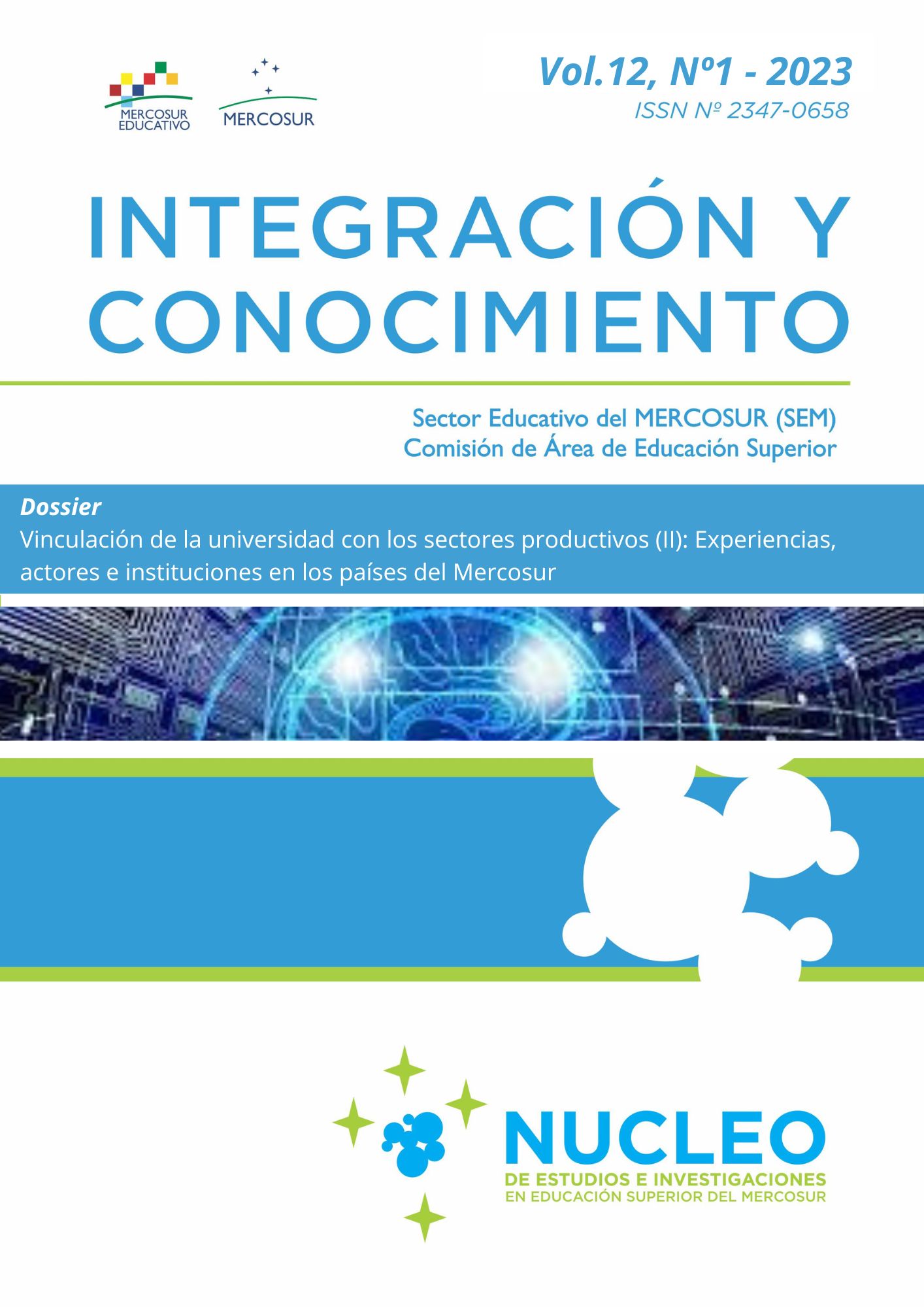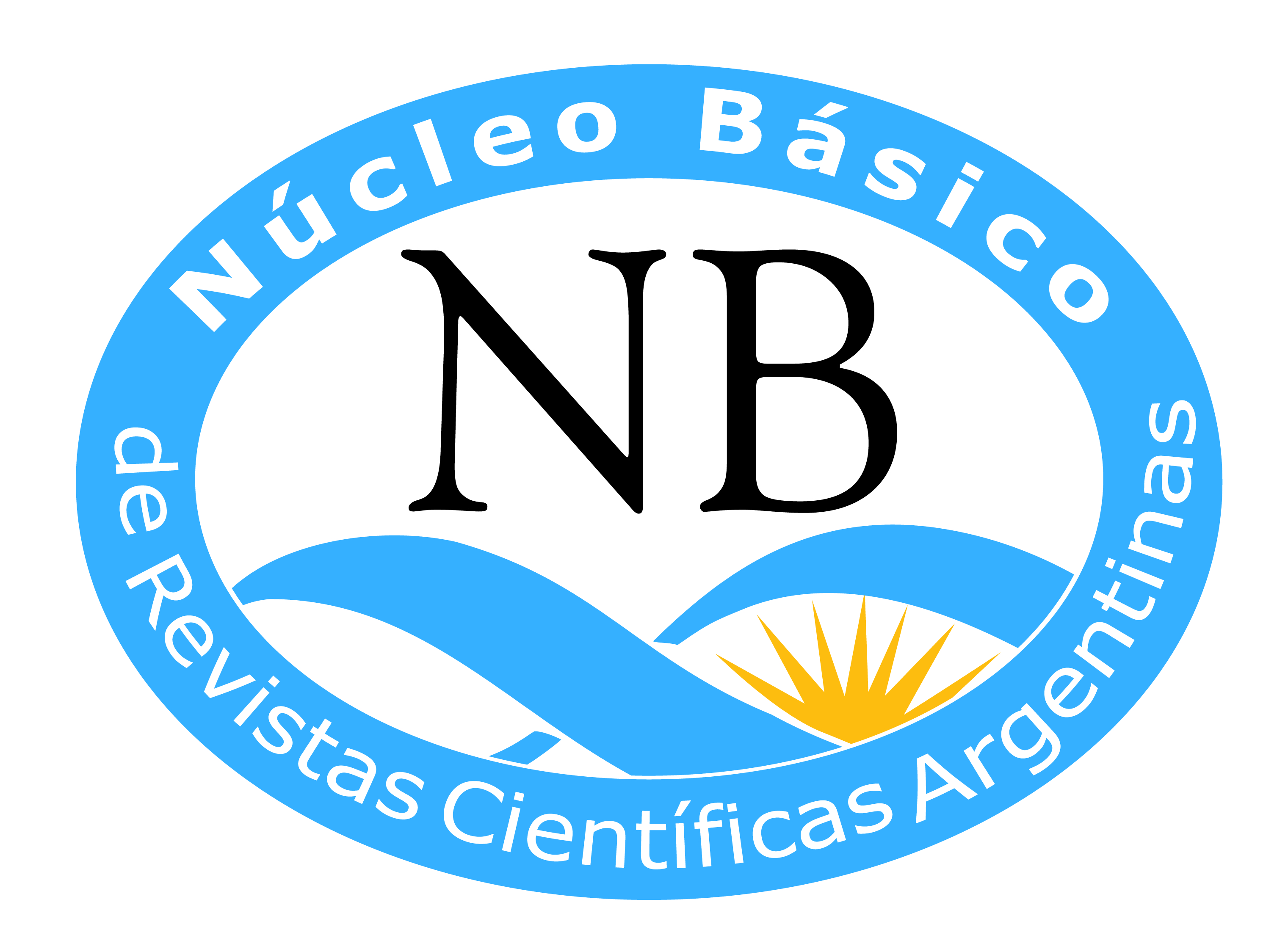Meetings and learnings between students in internationalization at home
DOI:
https://doi.org/10.61203/2347-0658.v12.n1.40081Keywords:
Internationalization at Home; Comprehensive Training; Intercultural Learnings.Abstract
Internationalization at Home is any academic activity that has an international dimension. This has the advantage of enabling the democratization of the Internationalization of Higher Education and offering to those involved the opportunity to develop an understanding of the world and strengthen intercultural skills. The objective of this present report is to analyze an experience of Internationalization at Home between Argentine and Brazilian students in the area of psychology. The data was collected from the evaluations carried out by the students, and organized based on the identification of challenges faced and transformed into learning and discoveries. After discussing the relevant literature, it stands out as a result of this experience that the participants perceived multiple learnings, such as overcoming their own prejudices, awareness of their own culture and that of the other, cooperation and fellowship. These are valuable contributions for a training that encompasses the academic and personal levels, and reveal that Internationalization at Home offers a space for intercultural enrichment.
Downloads
References
Ales Bello, A. (1998). Culturas e religiões: uma leitura fenomenológica. Bauru, SP: Edusc.
Arango, A. y Acuña, L. (2018). La Internacionalización del currículo y su relación con las condiciones de calidad en los programas académicos de educación superior para la obtención de registro calificado. ObIES, 2(1), 35-49. Recuperado de https://revistas.udistrital.edu.co/index.php/obies/article/view/12739.
Beneitone, P. (2022). Internacionalización del currículo en las universidades argentinas. Integración Y Conocimiento, 11(1), 163-181. Recuperado de https://revistas.unc.edu.ar/index.php/integracionyconocimiento/article/view/36536.
Berni, V. L. y Roso, A. (2014). A adolescência na perspectiva da psicologia social crítica. Psicologia & Sociedade, 26(1), 126-136. Recuperado de https://doi.org/10.1590/S0102-71822014000100014.
Clérico, G. M., Leite, R. V. y Guedes, M. (2021). Interculturalidad en la internacionalización curricular de la educación superior. En universidades argentinas y brasileñas: memorias de una red colaborativa del área de psicología. In: Suzuki, J. C. et al (Orgs.). Intelectuais em Circulação na América Latina: diálogos, intercâmbios, redes de sociabilidade. Volume II. Série: Diálogos interdisciplinares. FFLCH/USP, 283-307. São Paulo, Brasil.
Gonçalves, S. (2009). Internacionalização em casa: a experiência da ESEC. Exedra: Revista Científica, 1.139-166.
Ingui, P. y Clérico, G. M. (2019). Interrogar la enseñanza de la Psicología desde la internacionalización curricular intercultural. Revista UNC, 4(4), 110-129. Recuperado de https://revistas.unc.edu.ar/index.php/aifp/article/view/29361.
Jackson, J. B. (2008). Globalization, internationalization, and short-term stays abroad. International Journal of Intercultural Relations, 32. 349-358. Recuperado de http://www.elce.uefs.br/arquivos/File/Jackson_GLOBALIZATION.pdf.
Knight, J. (2014). Understanding Education Hubs within the Context of Crossborder Education. In: ______ (Ed.). International Education Hubs: student, talent, knowledge-innovation models. 13-27. New York: Springer.
Marcelino, J. M. y Lauxen, S. L. (2019). O papel da IoC na Internacionalização em Casa. En: Anais do X CIDU - Congresso Ibero-americano de Docência Universitária. Porto Alegre: EDIPUCRS.
Morosini, M. C. (2018). Internacionalização do currículo: produção em organismos multilaterais. Roteiro, 43(1), 115–132. Recuperado de https://doi.org/10.18593/r.v43i1.13090.
Oliveira, A. L. y Freitas, M. E. (2017). Relações interculturais na vida universitária: experiências de mobilidade internacional de docentes e discentes. Revista Brasileira de Educação, 22(70), 774-801. Recuperado de https://doi.org/10.1590/S1413-24782017227039.
Otten, M. (2000). Impacts of cultural diversity at home. In Internationalisation at Home A Position Paper. Org.: Paul Crowther et al. European Association for International Education (EAIE). Recuperado de https://www.univ-catholille.fr/sites/default/files/Internationalisation-at-Home-A-Position-Paper.pdf.
Stallivieri, L. (2016). Estratégias para Internacionalização do Currículo: do Discurso à Prática. En: Luna, J. M. F. Internacionalização do currículo: Educação, interculturalidade e cidadania global. Campinas: Pontes Editores. (1), 157-175.
Tavares, S. T. de P. y Gomes, S. A. R. (2018). Educação e aprendizagem no século XXI: o papel do professor e do aluno frente aos impactos das Tecnologias da Informação e da Comunicação (TIC) na educação. Evidência, 14(15), 59–71.
Traversini C. S. (2012). Processos de Inclusão e Docência Compartilhada no III Ciclo. Educação em Revista, 28(2), 285-308.
UNESCO (2009). Conferencia Mundial sobre la Educación Superior-2009: la nueva dinámica de la educación superior en la investigación para el cambio social y el desarrollo: comunicado. Paris, 2009. Recuperado de https://unesdoc.unesco.org/ark:/48223/pf0000188826.locale=en.
Urban, E. L. y Palmer, L. B. (2014). International Students as a resource for internationalization of Higher Education. Journal of Studies in International Education, 18(4), 305-324. Recuperado de https://doi.org/10.1177/1028315313511642.
Van Der Leeuw, G. (1964). Fenomenología de la religión. México: Fondo de Cultura Económica.
Vieira, R. C., Assis, R. M. y Campos, R. H. F. (2013). Aprender e conhecer o outro: pensando o ensino de psicologia para educadores. Psicologia & Sociedade, 25(2), 399-409. Recuperado de https://www.scielo.br/j/psoc/a/wmGLQPHLmkbQKmmGPG8xVQM/?format=pdf&lang=pt.
Wächter, B. (2000). Internationalisation at home – the context. In Internationalisation at Home A Position Paper. Org.: Paul Crowther et al. European Association for International Education (EAIE). Recuperado de https://www.univ-catholille.fr/sites/default/files/Internationalisation-at-Home-A-Position-Paper.pdf.
Van der Wende, M. (2011). Global Institutions: the Organisation for Economic Co-operation and development. In: King, Roger; Marginson, Simon; Naidoo, Rajani (Eds). Handbook on Globalization and Higher Education, 95-114. USA: Edward Elgar.
Downloads
Published
Issue
Section
License

This work is licensed under a Creative Commons Attribution-NonCommercial-ShareAlike 4.0 International License.
Authors who have publications with this journal accept the following terms:
a. Authors shall retain their copyright and guarantee the journal the right of first publication of their work, which shall simultaneously be subject to the Creative Commons License of Recognition which allows third parties to share the work as long as its author is indicated and its first publication is this journal.
b. Authors may adopt other non-exclusive licensing agreements for the distribution of the published version of the work (e.g., depositing it in an institutional telematic archive or publishing it in a monographic volume) provided that the initial publication in this journal is indicated.
c. Authors are allowed and encouraged to disseminate their work via the Internet (e.g. in institutional telematic archives or on their website) after publication of the article, which may lead to interesting exchanges and increased citations of the published work. (See The Effect of Open Access).



